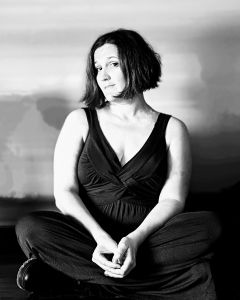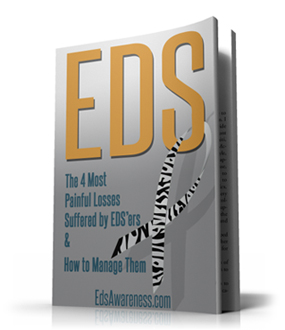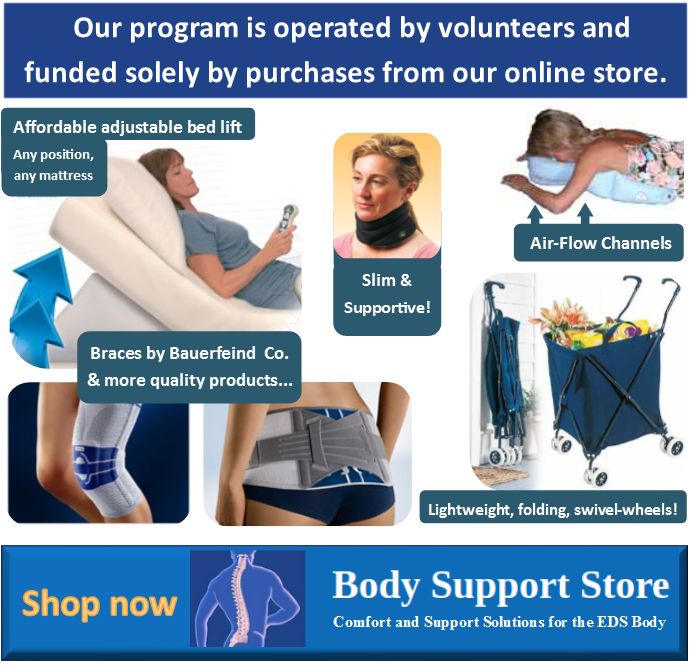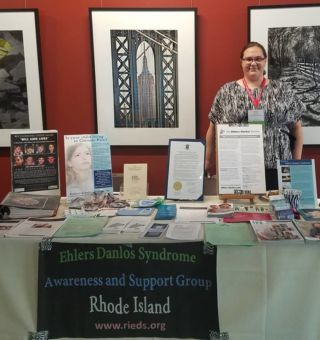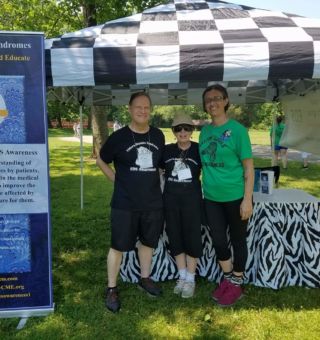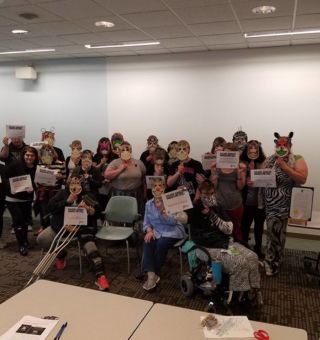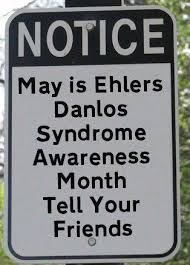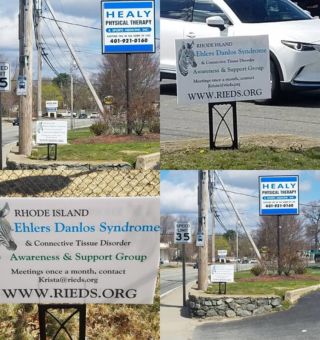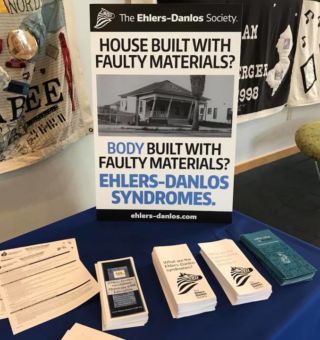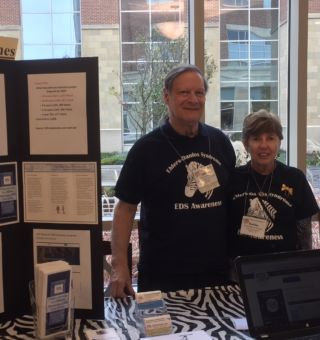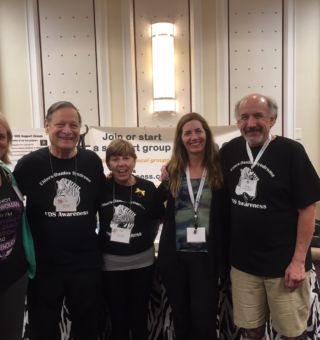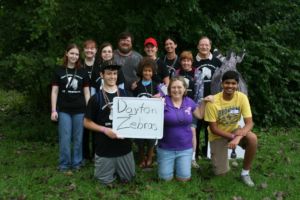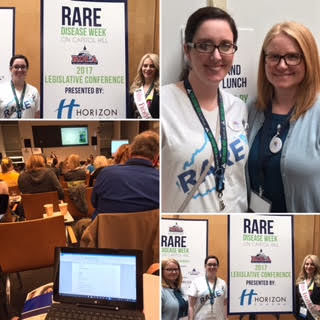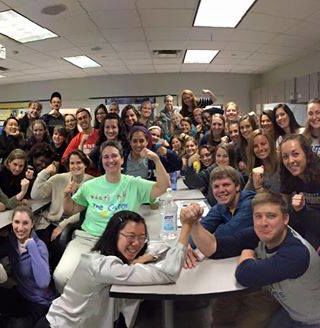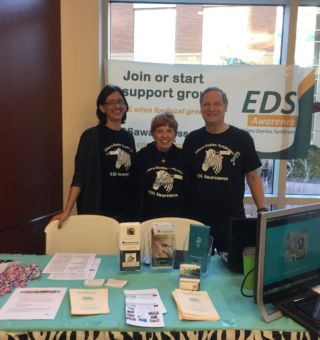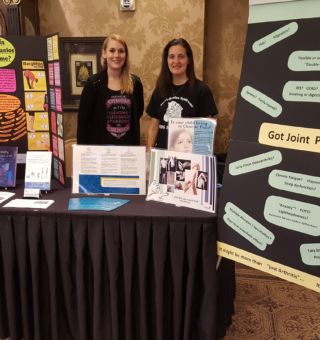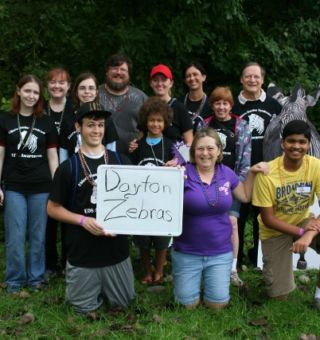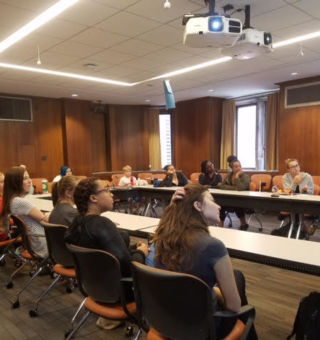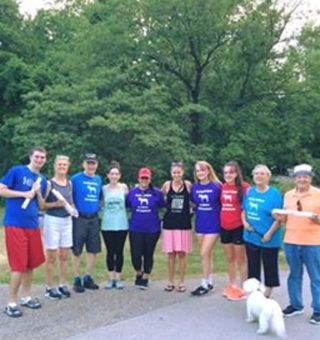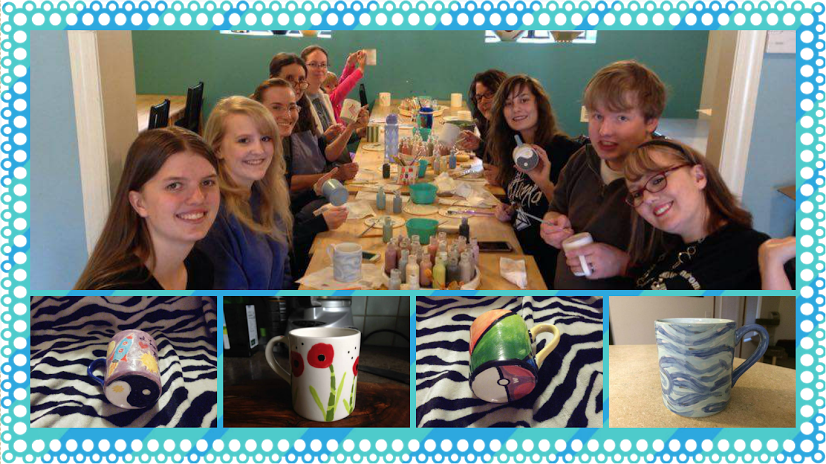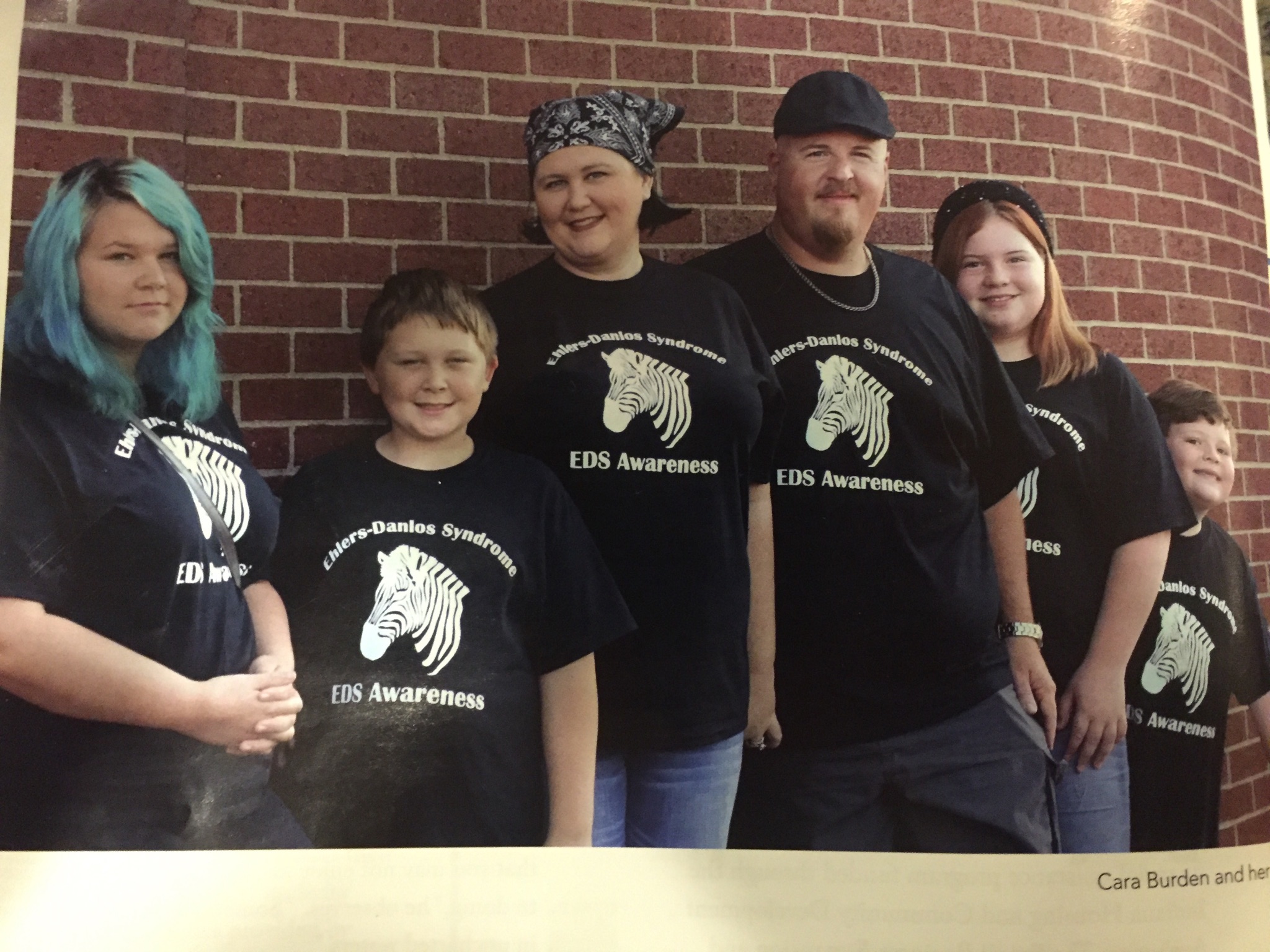The Sextacular EDS Zebra Group: An interview with admin Mary Cordaro
[CW: The following article is for an adult audience due to its content and language. We are sharing challenges related to having sex and ways of overcoming those.]
For our October newsletter, journalist Jackie Saa spoke with Mary Cordaro, admin of the “Sex-tacular EDS Zebras” group on Facebook. The idea behind the group was that by leveraging positive bio-feedback of sex and intimacy, people with EDS who may live with chronic pain could start to see their bodies as having more to offer to them. She wanted to create a safe place where EDSers can explore and embrace their bendiness without shame; the lofty goals for every member are to find a way to be sexyflexy, to thrive physically, and to have confidence whilst being disabled. Mary Cordaro describes herself as a differently-abled, classically educated MLS, lapidary, orchid grower, and dog owner/handler.
Jackie Saa:
Hi, Mary. I’m glad we are able to meet.
Mary Cordaro:
Hi, me too. Thanks.
Saa:
I am so happy you created this awesome EDS group! Can you tell me a bit about what you have learned from being an admin in the “Sextacular EDS Zebras” group?
Cordaro:
It is hard work. People are looking up to you as if you have some sort of knowledge while you’re just struggling like everybody else. We’re up to 3.9K people and have three moderators, including me. We have a zero-tolerance policy. We had a situation where a person decided to laugh at somebody’s misfortunes, and that is absolutely unacceptable. We don’t do bullying. We try to count to ten and be nice. And there are consequences if people don’t follow those rules. And my mod team is fantastic. I chose a gay man and a gender-fluid person because we wanted to create diversity. When I created the group, there wasn’t any other space that would support men in discussing sex and EDS or willing to let any of the trans folks in. I don’t believe we can help each other if we’re going to exclude certain portions of our population, you know?
Saa:
Yeah, I think it’s a great group. There’s really no other that I’m in that has created that comfort and that level of acceptance. If you feel comfortable sharing, how have your EDS symptoms influenced your sex life?
Cordaro:
For a long time, it stole it. What I realized was that I was dividing myself from my body. There’s no way to take care of yourself if you can’t be okay with yourself. Sex was part of how I taught myself to reintegrate my mind and body. I was angry that I wasn’t enjoying sex, that I couldn’t enjoy sex, and that sex had stopped. I didn’t want sex, but I wanted to enjoy sex. I then decided I had to figure out how to enjoy my body and what I need from sex to be able to have a sex life. These days, sex is the positive reinforcement I can get for my body that makes all the rest of my care possible. We need to be able to see our bodies in some positive light because they cause us a lot of pain constantly. So we have to be able to get enjoyment from them too, and the closest way to do that is through sex and intimacy.
Saa:
You seem very self-aware! What are your top life hacks to overcome or adapt to the challenges of sex and EDS?
Cordaro:
My top life hack for dealing with anything related to EDS is being an advocate for yourself. Nobody else can tell you what you need because they don’t know. If given the option, everyone would just desexualize us, to turn that part of us off, so they do not have to deal with it, but that’s not their choice; it’s ours. Everything is always a moving target because our reality is constantly changing.
Saa:
That is so true! I’m so glad you created this group because if we did what we felt, then we would probably never want to have sex, right?
Cordaro:
We have to fight the urge to just curl up in a little ball and not interact with the world because that’s not life, either. So, yes, there’s going to be pain. I can’t fix anybody’s pain. All I can change is how we think about pain and how we behave because of it.
Saa:
Very true. One question that is important to answer in order to feel less alone is how can your partner support you in terms of sex with EDS?
Cordaro:
The biggest thing a partner can do is to not put us in a box. It takes a lot of time to build the kind of empathy between partners where they understand exactly what you need and when you need it. So it’s always going to be a little bit stumbly at the beginning. That’s, again, where it all comes down to being an advocate, being able to open your mouth and state what you need. I guess ultimately, what it comes down to is their receptiveness to break that expectation of you and whether they are willing to try something else. Another thing we have to learn is to verbalize what we need. You need to tune into your whole body, and then you have to learn how to talk about it. If you can’t communicate what you need, you’re never going to get it. And this counts for all areas when you have EDS. I can’t even tell you how many doctors have told us we have no idea what’s going on with our bodies. You know what? We have every idea of what’s going on with our bodies, and we should be respected for understanding that. That’s one of the things I feel this group really has to repair: our self-esteem, our ability to say “No,” to understand our body.
Saa:
What are the most discussed topics in the group?
Cordaro:
We discuss a lot of general biology, nonsexual topics, like urinary tract infections. There is the entire medical side of sexual health where people are talking about organ prolapse and incontinence because all of these symptoms influence sex. For instance, if you want to find some good adult diapers, you can check out our group. Those are important because a lot of members wear them. Everyone in the group is at different stages, and we don’t want to scare the younger members. So we don’t always tell them how bad it can get. However, we don’t only talk about the complications of EDS; the members also share their wins. For instance, they would share that they had the confidence to approach someone that’s beautiful for them. I love the win stories. Then we have a lot of people working through some dark things. For example, they share how they grew up in unsupportive families or how they have been sexually repressed. So you have members who have no vocabulary. A lot of people are just doing hard work to repair themselves.
Saa:
Why was it important for you to be a part of this group?
Cordaro:
I realized we live in a society where none of us know what we’re doing. Everyone thinks that sex is porn; porn is not sex. I think our mass society has a lot more to do to balance expectations between porn and sex. With EDS, we need a place to be able to freely express our issues with sex because they aren’t quite what healthy people experience, and people have to figure out how to deal with them or how to communicate with a partner. These are difficult conversations for anybody, and the group helps to make it easier.
Saa:
Do you feel that there is any other place, a doctor, or literature that people can go to for this kind of help?
Cordaro:
That’s really the problem. There isn’t. I looked for literature; I talked to my OBGYN. All I get is a whole lot of shrugging. Once you have the diagnosis of EDS, you generally get a whole lot of shrugging.
Saa:
Right? I hear that a lot from EDS people. Okay, I have a diagnosis now, but where do I go from here?
Cordaro:
You think getting this diagnosis is going to change the world for you, and sadly, it doesn’t. I’ve had my diagnosis since 2009, and since then, there has been a little more understanding of EDS, but really not too much has gotten better. Most doctors don’t understand EDS. So lots of the time, we have to crowdsource our care. Some people come to solutions with their doctors, but these are exceptions. First, you need to find these professionals. That’s what our online community is also for because there are people who can help us. It’s just about finding them and then connecting with them. Getting care is really hard; none of us are medical professionals, but all of us have spent our lives marinating in the medical world, so we can urge each other to look in directions that we haven’t thought of. “We can heal thyself” is where I come from. If we’re not fighting to care for ourselves, our doctors can’t help us. If we can’t figure out how to talk to our doctors about what we need, they can’t help us. Sometimes, even when we do know what we need and we talk to them about it, they don’t help us. Then we have to have the confidence to walk away, but that is really hard.
Saa:
You look beautiful in orange. I’ve been meaning to tell you that the whole time. I’m so glad we were able to have this interview.
Cordaro:
Well, thank you so much for your time. I hope you have a great day.
Read related article:
Ehlers-Danlos Syndromes, gynecological complications & sexual health: https://www.chronicpainpartners.com/ehlers-danlos-syndromes-gynecological-complications-sexual-health/
October 2022


